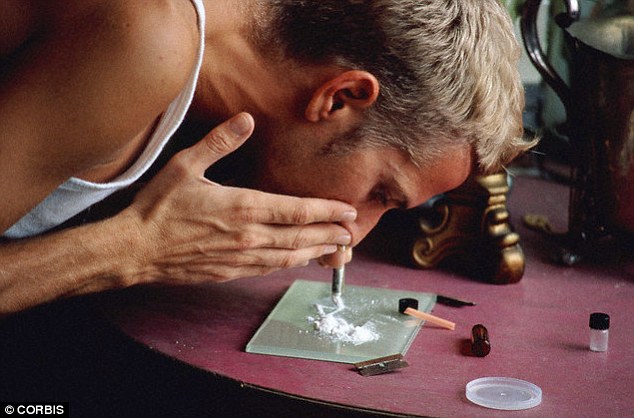Breaking the Cycle: Why Children of Cocaine Users May Be Less Likely to Become Addicted
Emerging evidence suggests that children of cocaine users may be less likely to become dependent on the drug. What does this tell us about ending the generational cycle of drug abuse?

Sharelines
Parents play a central role in the development of their children, shaping the behaviour of their offspring for years to come — for good and for bad. In this light, it is widely accepted that children of parents who abuse drugs and alcohol are more likely to have issues with substance abuse in later life.
Genetic predisposition, where some families appear to be more susceptible to problems with drugs and alcohol, is one of a number of widely accepted risk factors for addiction that increase one’s likelihood of developing issues with drugs. Other risk factors include growing up in an environment where drug abuse occurs regularly, being male, mental health issues, peer pressure and anxiety.
The Generational Cycle of Drug Addiction
Breaking the generational cycle of drug abuse is a chief concern among addiction experts, medical professionals and policymakers worldwide. Removing exposure to drug use during a person’s formative years can vastly reduce their chances of having issues with drug abuse later on.
It is, however, by no means a given that children of drug users will fall into the addiction trap. Most children of drug addicts in fact lead perfectly healthy and productive lives. And some new research suggests that children of certain drug users may actually be less susceptible to issues with substance abuse.
In 2013, Mathieu Wimmer, a post-doctoral researcher at the Perelman School of Medicine at the University of Pennsylvania, revealed new findings suggesting that fathers’ cocaine use could make their sons less sensitive to the drug, and therefore, less likely to form a dependence.
Less Likelihood of Cocaine Dependence
Put simply, experiments on rats suggested that cocaine alters DNA in sperm, changing the behaviour of future generations. The Penn Medicine team found that the male offspring of ‘drug abusing’ rats were more resistant to the rewarding properties of cocaine and, thus, less likely to become dependent on the drug.
“This adds to the growing body of evidence that cocaine abuse in a father rat can affect how his sons may respond to the drug — and point to potential mechanisms that contribute to this phenomenon,” said Wimmer.
“Further research is needed to better understand how these behavior changes are passed down from one animal generation to the next, and eventually if the same holds true for humans.”
Exciting Possibilities for Cocaine Addiction Treatment
If this does hold true it opens up exciting new possibilities in the way we look at drug (and especially cocaine) abuse. While children of drug users are often thought to be more susceptible because of the example set by their parents, Penn Medicine’s research suggests parents may affect their children’s behaviour in relation to drugs even if they never live together, or never even meet.
The potential ramifications from this are manifold, both for male cocaine users and their male offspring. Fathers who use cocaine, or have done so in the past, can take solace in the fact that their own missteps may be less likely to be repeated by their male offspring.
In addition to being less likely to form a dependence on cocaine, sons of users who have already formed a dependence on the drug may also be more responsive to counselling and therapy.
External Risk Factors for Addiction
While the early signs from the research are encouraging, the study of genetic predisposition towards drug use has a way to go. Dr R Christopher Pierce, senior researcher on Penn Medicine’s study, admits that any number of external risk factors may eclipse the positive effects of the father-son cocaine sensitivity link, while the presence of a drug-abusing parent, in many cases, raises a child’s susceptibility.
“Unlike our laboratory rats, drug-dependent people rarely use one drug of abuse and often have stress, poor prenatal care and other factors, that influence the behaviour of offspring,” he said.
For parents who fear their own drug abuse may negatively impact their children, it is important to look at the bigger picture. Understanding the risk factors that may lead their offspring to develop issues with drugs in later years is an essential first step in breaking the generational cycle of drug abuse.
Children exposed to an environment where drug use is a regular occurrence, or those with genetic tendencies towards drug abuse, are certainly more susceptible to problems with substances in later life, but it is by no means inevitable.
It’s Never Too Late for Recovery
Today, about 12 percent of children in the United States live with a parent or parents who are dependent on drugs, alcohol, or both — a worrying statistic that is reflected across the developed world. However, Penn Medical’s research suggests the foundations may already exist for a concerted effort against generational predisposition towards substance abuse. For parents, the crucial first step is to lead by example. With the help of public and private sector support services, they can help break this cycle by addressing their own issues with drugs and alcohol.
If you worried your cocaine use is having a negative effect on your children and would you like to do your part in breaking the generational cycle of drug abuse, contact us today and find out how you can get the help you and your family deserve.

